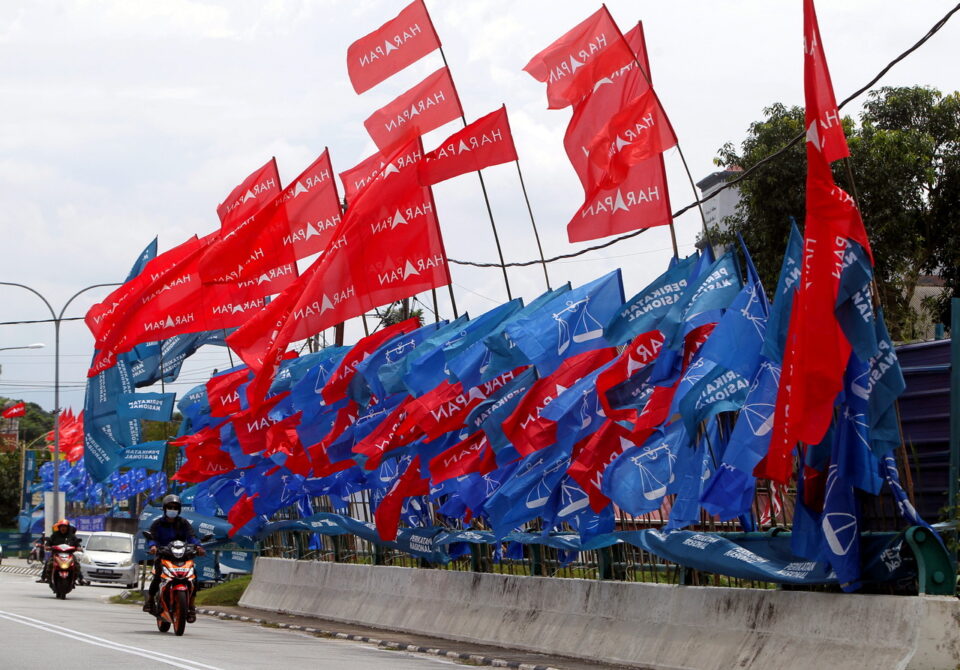By Ida Nadirah Ibrahim and Emyr Malik
SHAH ALAM, Nov 16 — All three major coalitions, Pakatan Harapan (Harapan), Barisan Nasional (BN) and Perikatan Nasional (PN) have centred their manifesto on propelling the country out of the current economic doldrums caused by the effects of the Covid-19 pandemic, according to political analysts.
The coalitions have centred their main thrust on reviving the economy, providing more jobs and opportunities for youth to upskill and reskill.
Similarly, initiatives were also introduced in all three manifestos to stabilise the cost of goods and services, with an emphasis on increasing food security.
Despite the similarities, former journalist Ooi Beng Cheang said that Harapan’s manifesto or action plan, dubbed ‘Kita Boleh’ (‘We Can’), has laid out more realistic goals that are more achievable compared to the one written for the previous 2018 general polls.
Citing Harapan’s announcements on the National Higher Education Fund Corporation (PTPTN), tolls, education and social welfare, Ooi said that perhaps being in the Federal government for 22 months has taught the coalition that some of the pledges made for GE14 were not financially viable.
“Harapan has the right ideas and it touched on issues that I thought were relevant, like the ageing population, climate change and the gig economy.
“Of the three manifestos released (the other two being from Perikatan Nasional and Barisan Nasional), it has the most wide-ranging issues that I thought were relevant to me,” he said.
As for PN, Ooi said that its manifesto is too light on details.
“I find it troubling because, as a voter, I want to know specifically how the plans will be carried out. Are they realistic? What are the conditions set? They were just icons with keywords. That, for me, is a red flag and it looks like PN put very little planning into publishing one,” he said.
Ooi said as the last coalition to unveil its manifesto, BN had the upper hand to see what was missing from the other two manifestos and had presented many ideas that were similar to Harapan’s, especially on the protection of gig workers and PTPTN.
“BN has the most experience in publishing manifestos. Traditionally, BN’s manifestos have always been an extension of government policies and things that have already been announced in the latest budget readings. This time around, there are no surprises here.
“Overall, all three manifestos do touch on similar topics so I take comfort in knowing that whoever wins, there will be reforms in education, the problems relating to the ageing population will be addressed, climate change will be given attention, and the plight of gig workers will be looked into.
“But again, there are many questions about their implementation. The devil is always in the details,” he said.
As for senior fellow at the Nusantara Academy for Strategic Research Azmi Hassan, BN’s manifesto seems to stand out.
He said BN’s GE15 manifesto has moved beyond race and religion and that the Malay-Muslim narrative is not present in the document.
Instead, he said the coalition opted for a more progressive approach by introducing a minimum monthly income of RM2,208 to households and pledged to grant citizenship for children born overseas to Malaysian mothers.
“During the campaign this time we see a lesser emphasis on race and religion by BN compared to the two previous elections.
“It is quite interesting that they did not concentrate on this particular group. BN has also pledged for a select committee to appoint the MACC (Malaysian Anti-Corruption Commission) and EC (Election Commission) chief, as well as provide citizenship to babies born from Malaysian mothers outside the country,” he said.
The BN manifesto also pledged to give free preschool education for all groups and free higher education for students in B40 families.
Other socioeconomic initiatives include plans to eradicate poverty and uplift marginalised communities.
Comparably, Harapan’s manifesto is geared towards “rebuilding Malaysia”, according to the coalition’s chairman Datuk Seri Anwar Ibrahim.
Harapan’s Offer

Dubbed the ‘Tawaran Harapan’, it outlines 10 priorities such as managing the cost of living, combating corruption and strengthening democracy, empowering the youth with economic opportunities, saving the ‘lost generation’ of students who fell through the system due to the pandemic, building disaster mitigation measures and enhancing protection for the people.
Its most eye-catching offer is to increase expenditure for public health to 5 per cent of the nation’s gross domestic product (GDP) within a single five-year term.
Other initiatives include repealing the Universities and University Colleges Act (AUKU) 1971 and the reduction of toll fares.
Singapore Institute of International Affairs senior fellow Dr Oh Ei Sun said the Harapan manifesto is equal to BN’s. “Harapan’s manifesto is at least as progressive as BN’s, with a focus on women’s equality and environmental preservation.
“BN is synonymous with benefits and handouts with or without the manifesto. I think those missing parts, such as the omission of Malay-Muslim mentions and an East Malaysian DPM (deputy prime minister) could also be due to it being cobbled together at short notice.
“PN, not surprisingly, mooted a number of measures meant to lighten voters’ burdens too,’’ he said.
For PN, it has outlined 12 pillars and 30 approaches with 234 offers to form a caring, clean and stable government.
Similar to Harapan, PN has also suggested raising the national health budget to 5 per cent of the GDP in stages.
Another initiative proposed by PN is the establishment of a government department to cater to the welfare of the elderly.
Like its name, PN has also emphasised several key economic initiatives aimed at uplifting the poor and marginalised communities.
This article first appeared in the Selangor Journal monthly November edition, published on November 14, 2022.





